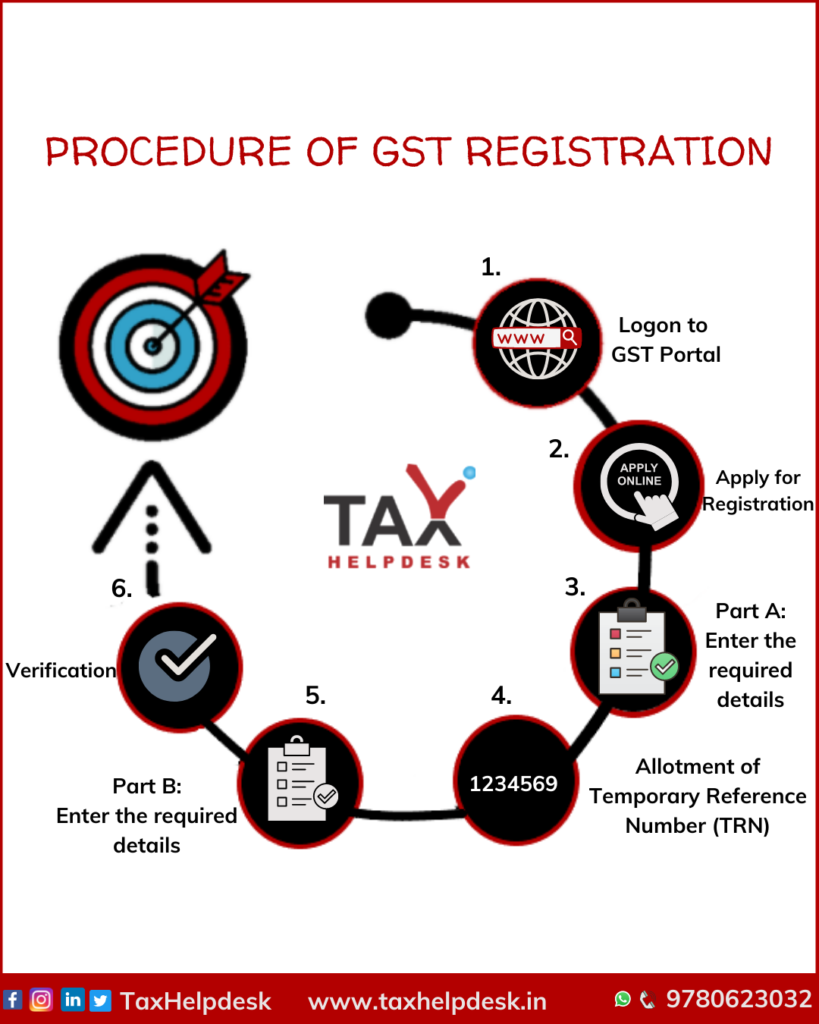Step-by-Step Process for Singapore GST Registration Explained
Maximizing Tax Effectiveness: Expert Tips on Browsing the GST Registration Labyrinth for Local Business
Browsing the intricate landscape of Product and Provider Tax (GST) enrollment can be a labyrinthine task for little organizations aiming to optimize their tax effectiveness. In this conversation, we will check out expert insights and workable recommendations that can empower little businesses to navigate the GST enrollment puzzle efficiently and maximize their tax obligation efficiency.
Eligibility Standards
Qualification needs for Small Company GST Registration include certain requirements that services need to satisfy to conform with tax regulations. To qualify for GST enrollment, an organization has to have a yearly turnover surpassing the threshold established by the tax obligation authorities, which differs by country.

Documentation Requirements
To efficiently complete the process of GST enrollment, local business must ensure they have all essential paperwork in order. The needed documentation generally includes proof of service registration or identification, consolidation and address proofs of the organization proprietor, photographs, checking account details, and evidence of the primary area of company. Furthermore, companies require to supply details of their service activities, consisting of the goods or solutions provided. It is critical to make sure that all documents are exact, up to date, and in the defined format to stop hold-ups or beings rejected throughout the registration procedure.
Keeping all required paperwork organized and readily easily accessible can enhance the registration procedure and help organizations conform with the requirements effectively. Meticulous focus to detail and adherence to the documents guidelines are essential for a successful GST enrollment process for little businesses.
Timing Factors To Consider
Considering the crucial documentation needs have been thoroughly addressed, the following critical element for small companies getting started on the GST registration process is the calculated management of timing factors to consider. Timing plays a pivotal function in GST enrollment, impacting not only conformity yet also monetary facets of the company. Local business need to very carefully intend the timing of their GST registration to make the most of advantages and decrease potential dangers.

Furthermore, businesses should align the timing of their GST enrollment with their functional readiness. Sufficient preparation, such as updating audit systems and training team, is crucial to flawlessly incorporate GST demands into day-to-day procedures. By tactically handling timing considerations, local business can navigate the GST registration procedure effectively and enhance their tax performance.
Enrollment Process Tips
Successfully browsing the GST registration procedure needs small companies to carry out tactical and aggressive registration process tips. One critical idea is to ensure all essential papers are readily available prior to starting the enrollment process. This consists of company enrollment files, evidence of address, bank declarations, and identification evidence of business proprietors. Confirming the accuracy of the information given is equally crucial to stop rejections or delays.
Additionally, comprehending the limits and needs for GST registration based on the particular state or region news where the business operates is necessary. Some states have various turn over limits that trigger compulsory enrollment, so being educated about these thresholds can help services prepare in advance.
An additional beneficial tip is to consider seeking expert help from accounting professionals or tax obligation experts that concentrate on GST enrollment. Their proficiency can improve the process, decrease errors, and guarantee compliance with all regulations.
Compliance Best Practices
Navigating the GST enrollment procedure efficiently requires not just tactical registration process suggestions but likewise diligent adherence to conformity ideal methods to make sure continuous regulatory alignment. Local business have to focus on compliance to avoid fines and preserve a great standing with tax authorities. One crucial ideal method is to keep precise and in-depth documents of all purchases. This consists of invoices, invoices, and various other monetary files that may be required for tax obligation audits or conformity checks. In addition, staying informed concerning any type of adjustments or updates to GST guidelines is necessary. If needed to ensure they are satisfying all needs, tiny company owners need to regularly review government standards and look for expert recommendations. Singapore GST Registration. It is likewise recommended to submit GST returns in a timely manner to avoid late charges and penalties. By incorporating these conformity finest methods right into their operations, small companies can navigate the intricacies of official site GST registration with confidence and effectiveness.
Verdict
Finally, small organizations can browse the GST enrollment puzzle by guaranteeing they fulfill qualification standards, collect called for documents, take into consideration timing effects, adhere to enrollment process suggestions, and stick to compliance best practices. By making best use of tax obligation performance with appropriate GST registration, companies can enhance their financial monitoring and procedures.
Browsing the elaborate landscape of Goods and Services Tax Obligation (GST) registration can be a labyrinthine task for small organizations intending to maximize their tax performance.Qualification demands for Small Business GST Enrollment include particular criteria that organizations need to satisfy to comply with tax obligation guidelines. The reference required documents commonly includes proof of service registration or identification, address and incorporation evidence of the service owner, photos, financial institution account details, and evidence of the principal location of business. In addition, companies require to offer information of their company tasks, including the services or items supplied.Effectively browsing the GST registration procedure requires little businesses to implement aggressive and critical registration process ideas.